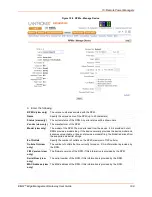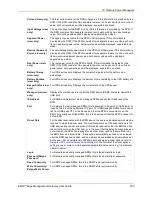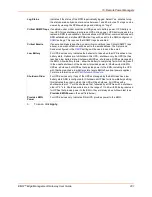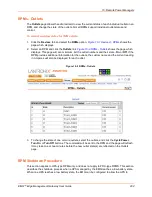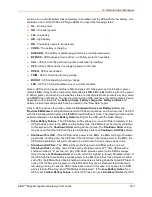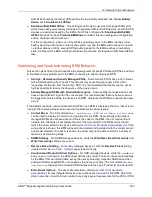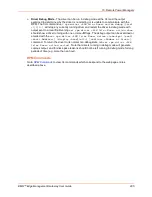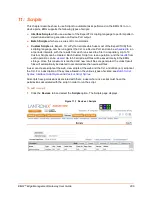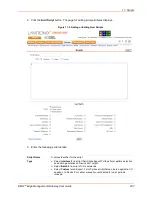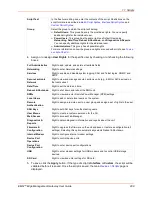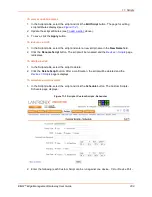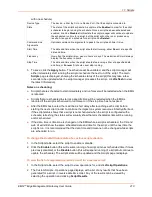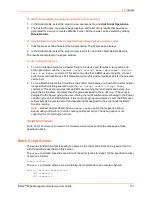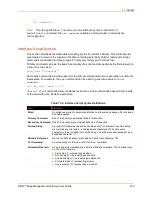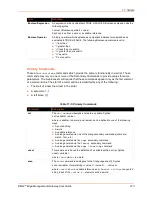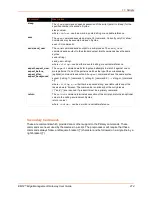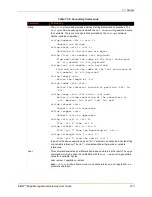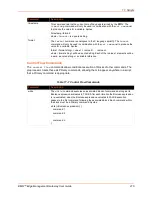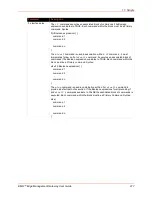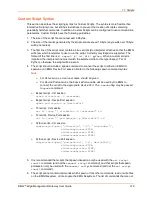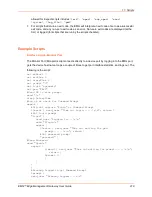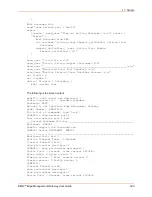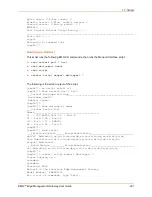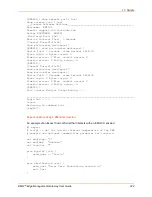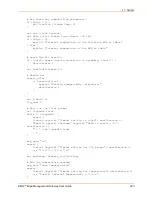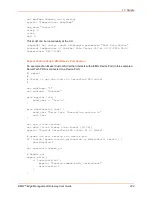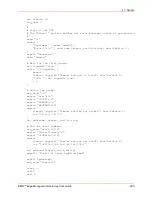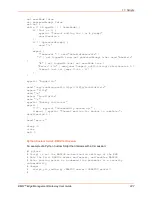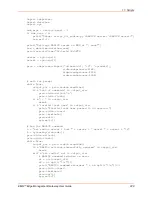
11: Scripts
EMG™ Edge Management Gateway User Guide
213
Primary Commands
These are
stand-alone
commands which provide the primary functionality in a script. These
commands may rely on one or more of the Secondary Commands to provide values for some
parameters. The preprocessor will require that these commands appear only as the first element
of a command line. The start of a command line is delimited by any of the following:
The start of a new line of text in the script
A semicolon (';')
A left brace ('{')
Table 11-5 Primary Commands
Boolean Expression
An expression which evaluates to TRUE or FALSE. A Boolean expression has the
following syntax:
<value> <Boolean operator> <value>
Each can be either a word or a variable reference.
Boolean Operator
A binary operator which expresses a comparison between two operands and
evaluates to TRUE or FALSE. The following Boolean operators are valid:
'<' less than
'>' greater than
'<=' less than or equal to
'>=' greater than or equal to
'==' equal to
'!=' not equal to
Command
Description
set
The
set command
assigns a value to a variable. Syntax:
set <variable> <value>
where <variable> is a word, and <value> can be defined in one of the following
ways:
A quoted string
A word
A variable reference
A value generated via one of the string secondary commands (compare,
match, first, etc.)
A value generated via the
expr
secondary command
A value generated via the
format
secondary command
A value generated via the
expr timestamp
command
unset
This command removes the definition of a variable within a script. Syntax:
unset <variable>
where
<variable>
is a word.
scan
The
scan
command is analogous to the C language scanf(). Syntax:
scan <variable> <format string> <value 1> <value 2> ... <value n>
where
<variable>
a variable reference, and
<format string>
is a quoted
string. Each of the
<value x>
elements will be a word.
Term
Definition

